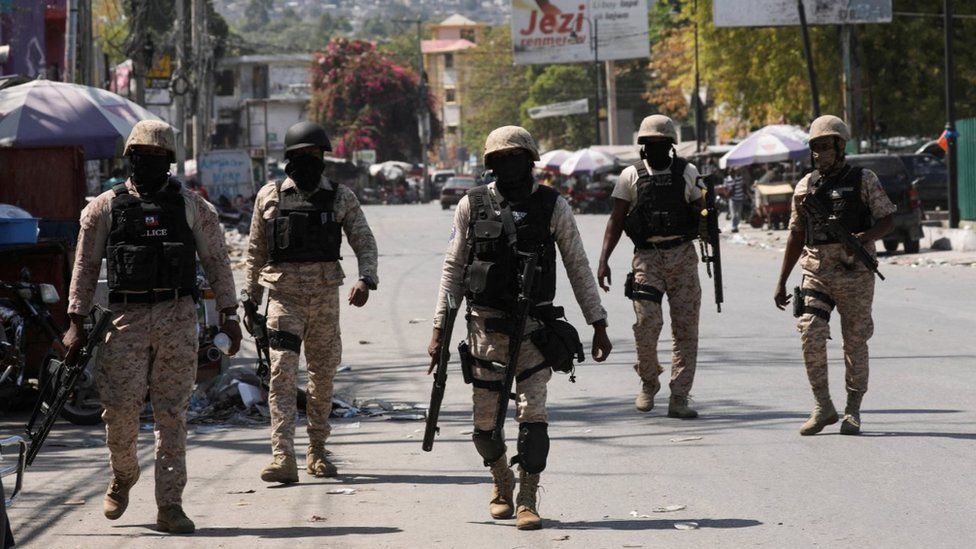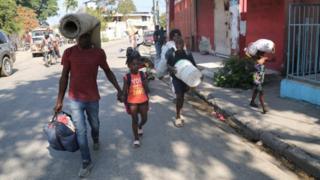
The sound of gunshots piercing through the air has become all too familiar for people living in the Haitian capital, Port-au-Prince.
Armed attacks have been mounting in recent weeks as the capital’s notorious gangs united to oust Prime Minister Ariel Henry.
Around 80% of the city is now estimated to be under gang control and more than 15,000 people have been displaced just in the past weeks.
Many of the Haitians who have contacted the BBC World Service’s Outside Source programme during this latest surge of violence say that they have long suffered under the rule of the gangs.
Annie is one of them. The 28-year old fled her home in Port-au-Prince two years ago, along with her brother and her mother.
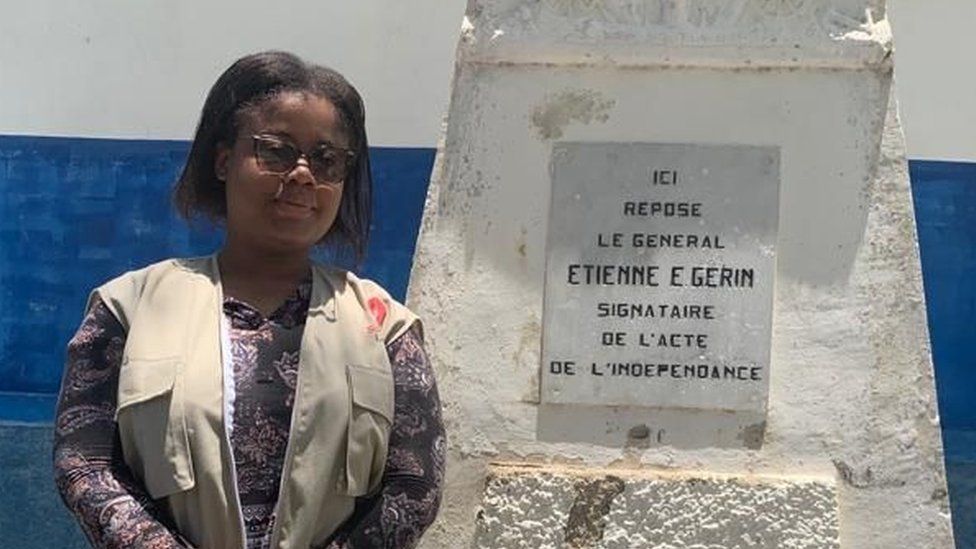
“It felt like I lost my childhood memories, they are all destroyed, completely erased,” says Annie, who works in education.
“When I left the house, I left it without any hope of coming back,” she adds. “I saw so many awful things I never thought I would see. We were afraid for our lives.”
After some time had passed, Annie and her family returned to their home, but there was nothing left for them to save.
“It started with gunshots… particularly in the night,” she recalls the time when gangs started to take control of the neighbourhood where she lived.
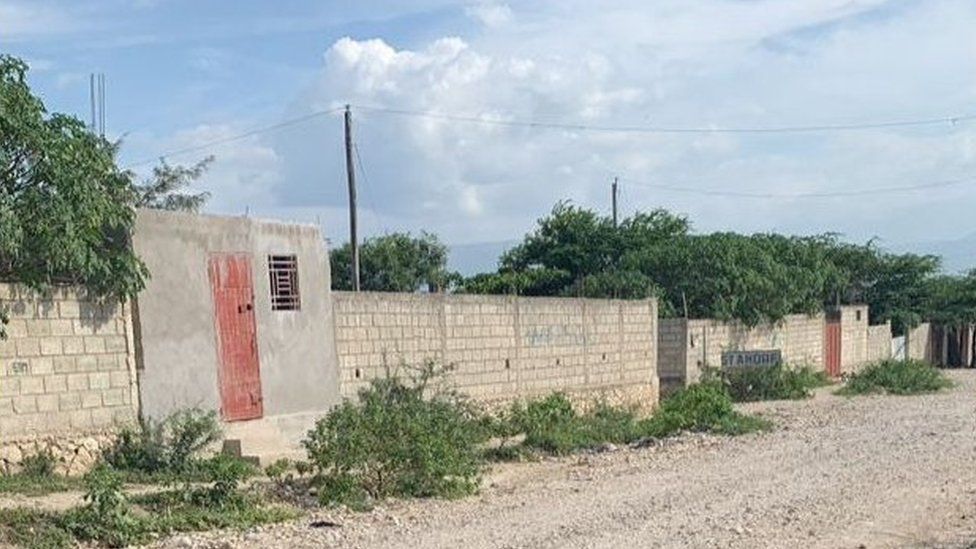
Although they moved to a safer area, she says some nights she still hears gunshots and the anxiety and violence are a constant in her life.
“We are living with death on a daily basis.”
Now that gangs control Haiti’s major ports and many of its water facilities, access to food and water is severely limited – bumping up prices that are already high because of inflation.
Annie says she and her family avoid going out and if she needs to buy food from a nearby market, she varies her route to ensure her safety.
“Many people are living on less than a dollar a day and they cannot afford food and that is really, really hard,” she says.
‘I cry because I lost everything’
Another Port-au-Prince resident, Kerby, laments that he wakes up most mornings with “no money in [his] pockets”.
It was not always like this. Kerby used to have a business in Port-au-Prince and a house where he lived with his wife and daughter.
But one day in 2022, gang members came to his business demanding protection money.
When he was unable to pay, they came to his home and threatened to kidnap his family. Unable to raise the sum the gang demanded, he took his family and fled to Cap-Haitian.
Cap-Haitian, Haiti’s second biggest city, located in the country’s north, is a safer place to live and Kerby says he can now go outside without coming face-to-face with violence.
But he has lost all of his financial security: “Right now, I don’t have anything.
“I wake up in the morning and if we have sugar in the house, we make sugar water and put a bit of salt in it, just to drink it and stop the pain of hunger.”
But even the price of water, which he buys in plastic bags from a roadside stall, has recently tripled in price.
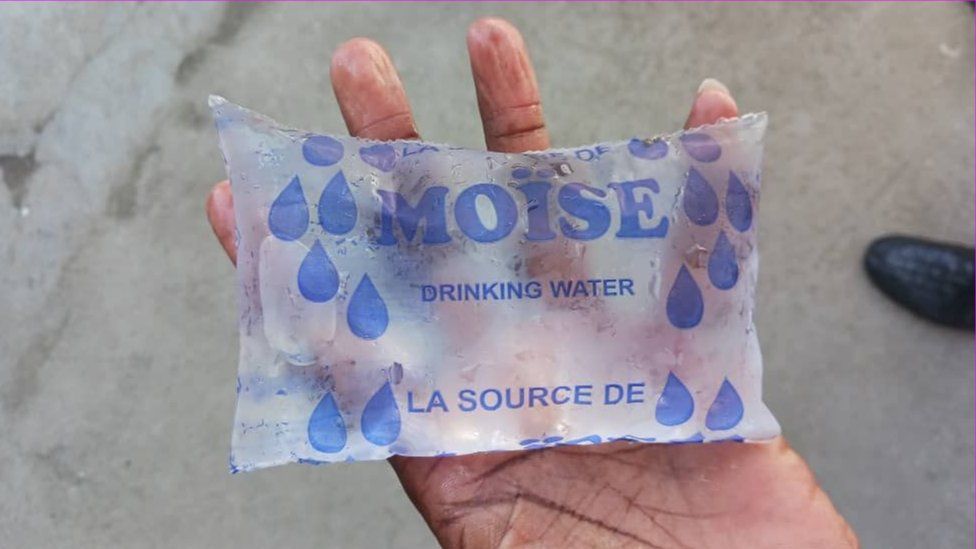
On a good day when he has some money, Kerby says he buys some bread for himself and his family.
He is struggling to come to terms with this new reality.
“Sometimes I cry because I lost everything,” he admits. But he says he does not regret leaving Port-au-Prince in order to provide a safer life for his daughter.
Separated from family
Bernado is currently stuck in the north of the country after being sent there for his work. He usually lives further south, with his wife and three children.
He says he is unable to travel as the streets are unsafe.
Six months ago, when his wife went into labour with their youngest child, gangs were exchanging gunfire close to his house.
“With a lot of shooting outside, my wife waited to give birth, there were no cars outside to bring her to a hospital,” he recalls.
He also describes the struggle to find a hospital for his wife to give birth in, as the public one that is closest to his house is in a gang-controlled area.
In the end, Bernado got her to a nearby private hospital. A costly option, but the only one which allowed her to deliver her baby in a safer environment.
Even before the recent escalation of violence, the health system in Haiti was struggling, with only about 60% of Haiti’s residents having access to some form of health care services, according to the Pan American Health Organisation (PAHO).
‘We Haitians are resilient’
Tatiana, a 47-year-old headteacher, has just returned to her home in a suburb of Port-au-Prince.
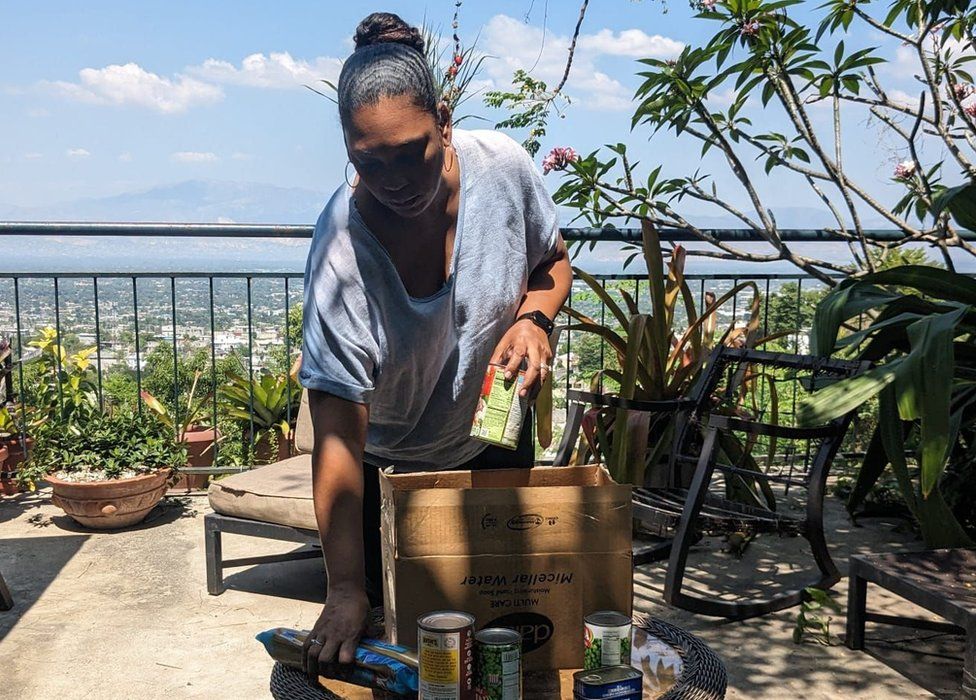
She, her husband and their two daughters were displaced twice in recent months, most recently when thousands of inmates escaped Port-au-Prince’s main jail.
They quickly packed all their necessities in a car, left their dogs behind with food piled high in their bowls, and kept in touch on handheld radios with neighbours who had stayed behind.
They left in a convoy with others who were fleeing their area.
Tatiana says she is lucky she can stay with family in the mountains. Conditions are cramped, but they have solar panels for electricity.
But their daughters have nevertheless picked up on the tension. “My youngest [daughter] feels the anxiety her dad and myself are experiencing.”
Despite all the challenges, she is still determined to keep teaching her classes via online lessons.
Most students in Port-au-Prince currently do not have access to education as schools remain shut.
Tatiana knows of one school in the city centre which had to shut its doors after bullets were fired into the classroom while students were inside.
She says she and her pupils are fortunate to have access to relatively reliable internet and electricity.
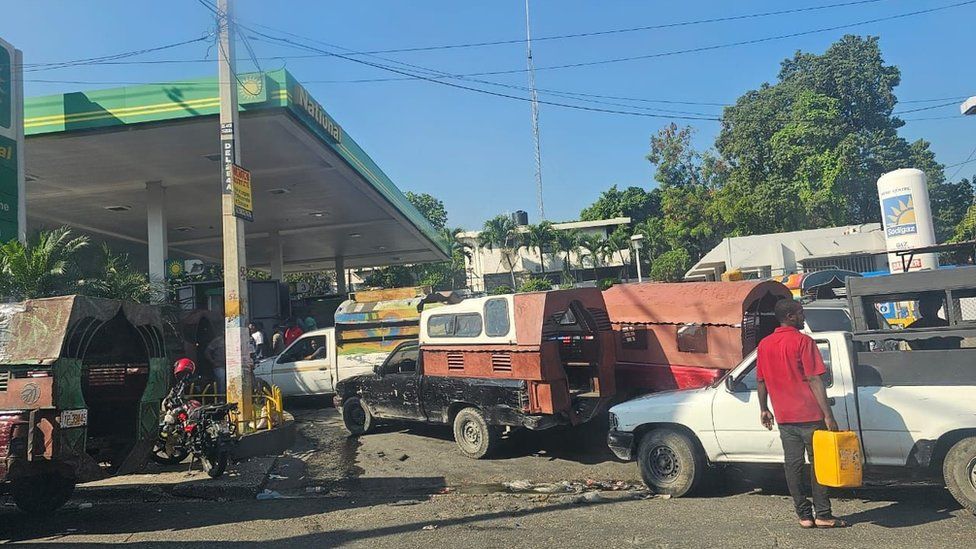
“I have teachers sitting in their cars because they use the electricity from the lighters in their cars to teach the students,” she explains.
“Some of them used to teach from the roof of their houses to get better internet, but that is not possible any more with all the violence.”
If the teachers are not able to log in, Tatiana jumps in and teaches the lesson, no matter what the subject is. She does not want her pupils to lose out on their education.
Tatiana insists she and her colleagues will keep going.
“We Haitians are a resilient bunch. But I don’t know how much more of this we’re going to be able to deal with. Our kids, for sure, are traumatised.”
For more background on the crisis in Haiti, listen to “Haiti: The country governed by gangs” on The Global Podcast.
-
-
22 hours ago
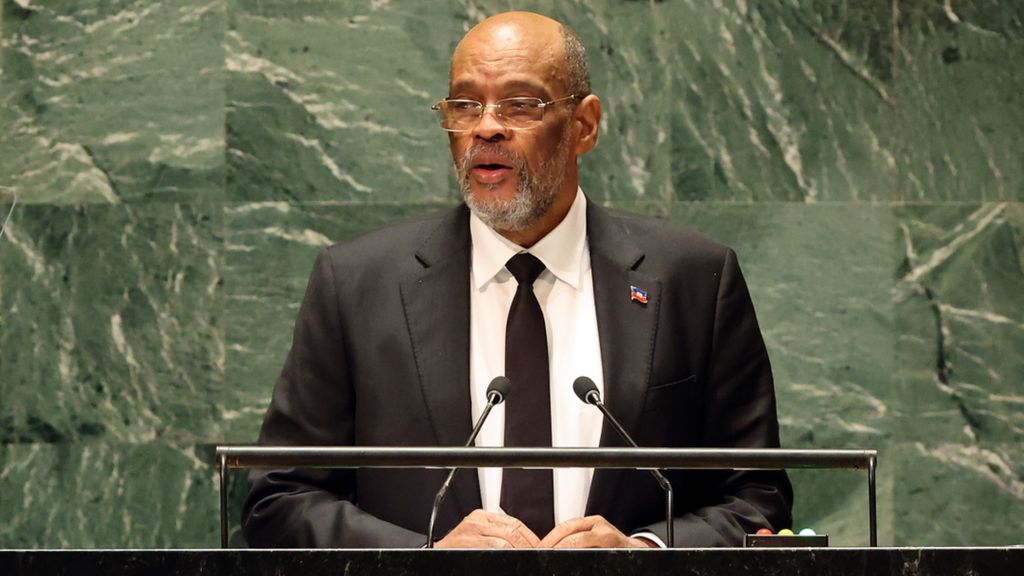
-
Source: bbc.co.uk


